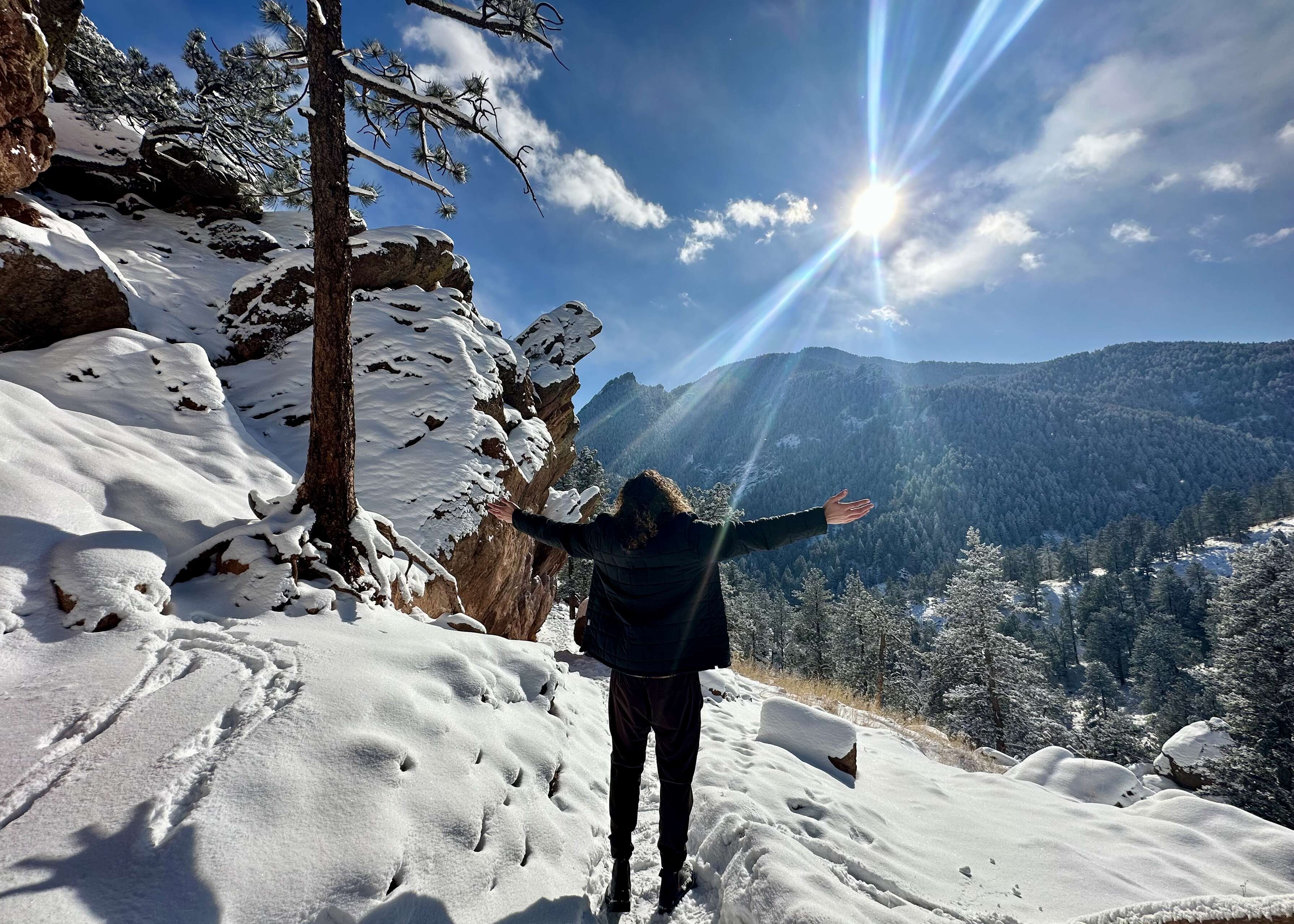Going West
"Go West, young man" is a phrase that’s been credited to the American journalist and activist Horace Greeley, who penned the words in the New-York Daily Tribune in 1865.
And while I may not be as young as I once was, a few weeks ago I went West.
I gathered my belongings, my dog Coco, loaded my Jeep Wrangler, and—accompanied by my mom and sis—set out for Boulder, Colorado.
And wouldn't you know it, along the way we experienced our own 'American frontier' adventure, when we faced the coldest weather we'd ever been in (-25 Fahrenheit) as a wind-and-snow storm blew through Kansas and Missouri.
Facing the frontier
While this still should have been tolerable in the safety and convenience of a vehicle, my Jeep lost its heat.
In frigid conditions, I found a car-parts store and managed to change the thermostat in hopes of a better result. Mildly improved (there was another heater core issue).
Eventually we reached Boulder with the aid of hand-and-feet warmers bought at a gas station, my mother and sister helped me unpack then flew back to Pennsylvania, and I settled into my cozy new apartment with Coco.
This is the part where I could rave about how gorgeous the scenery is here, how much I am loving the coffee and brewery scenes, how I enjoyed my first trail runs up into the Flat Irons with a group of crazy people willing to brave sub-optimal conditions like me. Already I could list a number of reasons to be excited about having moved to Boulder and give you a success story on new beginnings or an Instagram-worthy tale of wanderlust.
But I think I’d rather share with you what else is going on underneath my surface.
‘Negative’ emotion bubbling up and following me around
Sometimes in life we make decisions without knowing we’ve made the right one. Sometimes, there is no ‘right’ decision.
Right now, I feel tension. Anxiety. Peace. Doubt. Comfort. At different hours in the day. At different moments in the hour. I take in one deep breath, and wish I would have moved back to Spain. I release another, and am glad for having come to Boulder.
Wishing for magical suffering
When I lived in Spain, I experienced what I later would describe to my friend Johnnie Moore as ‘magical suffering’. During that time I was navigating my divorce, so far out of my comfort zone, removed from American luxuries, familiar relationships, and material possessions, that I was forced to confront fears surrounding the essence of who I really am that otherwise might have lain dormant behind the trappings of modern American life.
At times within me the last few months, I swear I’ve heard the words, "Go East, young man." Much of that has to do with what Spain was for me. It is the place where I learned to reinterpret and believe my body, spirit, and soul is ‘home’.
It is in Spain that I began to ask the question: What if home is wherever a person is, wherever their body resides, possessions/community/shelter aside?
And in this intense magical suffering, where I would sometimes go days without speaking to anyone and write plenty of journal entries and smoke rolled cigs like the Spaniards while leaning out of my apartment window overlooking a 500-year-old cathedral in Arenas de San Pedro, more questions came, such as: Could our modern treatment of the word home be short-changing what it actually means? In turn, could this limited understanding be stifling our capacity not only to feel alive, but manage uncertainty and transition more effectively? (Which seems to me much of leadership is really about.)
Origins of home
As I dug deeper, I found the word home has compelling origins. From the Proto-Germanic khaim (hām), a distinction is made between shelter (a house) and a residence (a home). Home refers to a village or estate where many people are gathered. It implies that there is a physical dwelling involved.
But the Latin root word home (pronounced ho‧me) is a bit stranger. It is translated to mean 'human being, person, and people'. Perhaps a more accurate translation from Latin to our modern usage of the word home can be found in the Latin word ‘larem’, which is understood to mean ‘guardian spirit’ or ‘where one dwells’.
I am sure at one point or another you have heard it said, “Home is where the heart is.” Which suggests home is the abiding place of one’s affections - relationships with self and others.
The German philosopher Martin Heidegger, too, explored the phenomenology of home in his works. He believed home was more than a physical space and rather a place where we exist authentically and meaningfully.
“Being human is dwelling,” according to Wim Dekkers, a senior researcher from Radboud University devoted to improving quality of healthcare.
Further immersion into yoga practice and philosophy while at a temple outside Arenas led me to regard my body as the outermost layer of my brain, an intelligence I could learn from, to teach me more about my place of authentic dwelling.
Going home
For this season, I am choosing to make Boulder my shelter, while recognizing that my residence is my body, spirit, soul, and the affections I carry (those I love).
My journey home is one of faith - toward a deeper, more authentic self - an ongoing pilgrimage of the heart, accepting all that I am and am not along the way, a marriage of potential and limitations.
Perhaps this kind of understanding and pursuit of home can make each one of us more human again, although some of us may try to avoid such an inner pilgrimage of the heart, for fear of the pilgrimage itself.
I will make it, though. So that I can say: Wherever I go, there I am.
